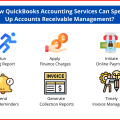6 Tips for Effective Rental Property Accounting

A critical component of rental management is effectively handling your rental revenue and expenditures, which includes accurately accounting for and tracking your cash.
No matter if you’re a landlord or a property manager, you must have a clear accounting system in order to stay organized. Property managers are also responsible for the appropriate management of owner funds and adhering to trust account laws.
Accounting for rental properties may appear to be as simple as documenting rent payments (income), property upkeep, and taxes for a novice investor (expenses). However, knowledgeable investors, landlords, and property managers could advise you to look into a few other areas as well for top-notch bookkeeping and accounting.
Here are some accounting pointers for rental property owners to help you maintain the accuracy of your financial records and reports:
1. Know the types of transactions that apply to Your rentals
The many sorts of revenue and expenditure transactions can each be connected to a tenant, a piece of property, or your company. You may maintain accurate accounting records by being aware of how each transaction connects to various aspects of your organization.
2. Keep personal and business accounts separate
You should create a separate company checking and savings account for your rental business, even if you only own one property. Until you are ready to pay yourself, this is the simplest approach to keep your money outside of your personal accounts. It's also the simplest approach to maintaining order and making reconciliation tasks simpler.
For each property, some landlords may even decide to create a different account. This may not be required for every single-family rental property you own, but it is advised for multifamily properties where you manage several payments and costs for each unit.
It's crucial if you manage rental properties that you have a business bank account and are knowledgeable about managing trust accounts. You must maintain the assets of your owners distinct from your own because it is forbidden to mix monies.
3. Establish a system for recording transactions that is consistent
Establish a process or system that will control how, when, and why you post transactions pertaining to your rentals on a regular basis. You should be able to clearly identify the party to the transaction. Additionally, you need a procedure for consistently documenting your transactions. For instance, you may set out an hour every Monday to make sure all transactions are accurately documented.
4. Use software to remain organized
The proper tools make it thankfully simple to implement effective accounting processes. These tools are affordable, starting at just $35 per month, and provide the time-saving benefit of building an integrated accounting system.
Landlords, investors, and property managers would be better equipped to properly and effectively execute their accounting and bookkeeping duties with the assistance of property management software.
You will have access to comprehensive general ledger accounting for owners, tenants, and properties. You will also be able to see, edit, and print all ledgers for each property, tenant, owner, and bank account used to manage your properties. Traditional accounting systems need repeated or even triple recording of transactions in order to have accurate and auditable records.
Although QuickBooks is a solid option for accounting for rental properties, you may be interested in some of the additional features provided by rental software. Property management software includes a plethora of capabilities that will streamline every aspect of your rental company. Everything is included in your rental program, including the option to post vacancies and collect rent online.
Should you ever be subject to an audit where you must demonstrate that you have complied with trust account rules and have managed your company's cash appropriately, using the software will come in handy.
5. Get ready for tax season
The greatest method to minimize stress during tax season is to maintain good rental accounting all year long. You'll have access to all the information required to complete your tax returns, send vendors 1099-MISC forms, and provide owners with crucial reports for their tax requirements.
Property management software may also be helpful during tax season because many of them combine functional tax tools and online filing options.
6. Seek some professional help
Never be hesitant to seek support when you need it. It's always beneficial to have a second opinion, regardless of whether you have a reliable accountant for rental property you wish to work with or a property management mentor you turn to for guidance.
In some circumstances, you might need to seek the assistance of an accountant or legal counsel. In any instance, they will be appreciative that you used the aforementioned recommendations to make an easy-to-follow accounting trail.
Other articles and publications:
Articles and publications of other companies:
- +1 (646) 270-9836
- Long Island City
- grantny.com












